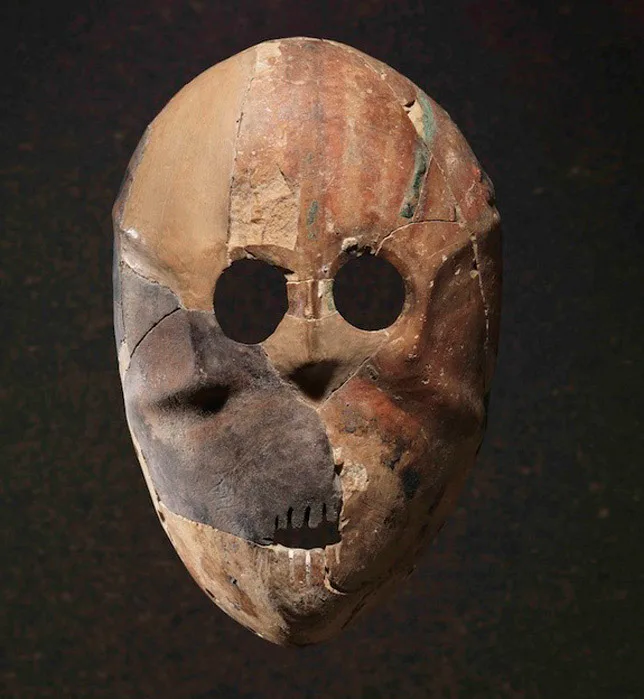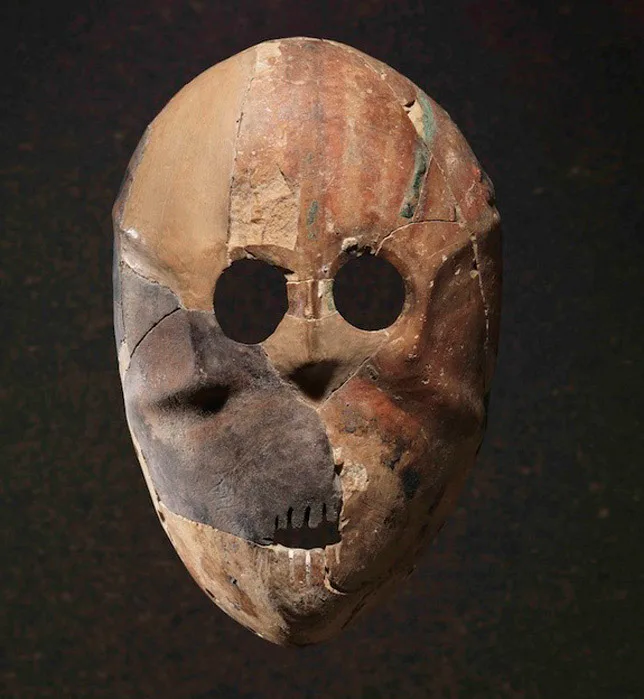The World Returns:
Outline of an Antipolitics
Josep Rafanell i Orra
Are we condemned to resurrecting new scenes of political representation? In order that a life worthy of being lived and shared might once again emerge, is it first necessary that we destitute politics and its deadly abstractions, along with every claim to representation? The old word communism must be revived once again, yet it is a word that human beings can no longer say by themselves. Communism has never been an idea: it resides in practices of communization, in the art of our interdependencies, as much in our insurrections as in the care we take of our gardens.
Other languages: Español, Français
In the realist, faith doesn’t spring from the miracle but the miracle from faith. —Fyodor Dostoevsky
Ecological breakdowns, social implosion, proliferation of insurrections: the seams of the world system, the system-world, are giving way. It’s becoming clear: we had believed in Nature since we had been separated from it, just as we had believed in Society in order to exist. It’s this dual belief, which we had called modernity, that is irremediably foundering.
Under duress, we see that various interrelations between living beings are coming apart. We’re learning that to keep from losing the world we’ll need to inhabit fragmentary worlds which humans alone can no longer compose. “No one lives everywhere, everyone lives somewhere. Nothing is connected to everything, everything is connected to something” (Donna Haraway, Staying with the Trouble). And in this way we learn that the social totality, closed upon itself, is what has expelled us from the world; society has always constituted itself on the backs of multiplicities. How can we fail to see that we must rediscover cosmomorphic ways, always situated, of forming a community of beings?
We should take note of the multi-species forms of life that emerge in the proliferation of disasters, such as the mushrooms that unexpectedly compose new communities in the devastated forests of Oregon. Henceforth we must—our insistent refrain—learn how to live in the ruins. And yet if fragments of the devastated world remain inhabitable, they also afford new opportunities for economic appropriations (Anna Lowenhaupt Tsing, The Mushroom at the End of the World). At the end of the chain, the tricholoma matsutake, guest star of the new literature of disasters, will finish its run in some upscale restaurant in Japan… Thus to see in this nice story “the possibility of living in the ruins of capitalism” would require either an academic’s inordinate optimism, or as in other times and other stories now anachronistic, a determination to ruin all that is ruining the world. But it appears that revolutionary subjects, as subjects of social emancipation, have entered into an irresistible decline.
So this patchy world celebrated with so much positivity remains governed by the economy. Its fragmentation is not in any way a prelude to its detotalization. We will say, contra Haraway, that everything, each thing, each being, remains tied to the Totality thanks to monstrous capitalist operations of composition. Should we be content with conducting inquiries into the moribund worlds of interdependence between humans and non-humans? Should we then become multi-species ambassadors in new scenes of political representation? Should we regard “holy Anger” (Baptiste Morizot, Manieres de vivre), or worse, social hatred, as a dubious cosmopolitan incivility? This would be to forget a basic social fact: so long as there are humans who presume to govern others of their kind, so long as there are social institutions with their pretenders to representation, there will be the hatred of those who refuse to let themselves be governed.


For centuries we have been separated from the world of “nature”. For nature as world can only exist if we take part in it (Tim Ingold, Walking with Dragons). And now we’re being dispossessed of our ties to the social “world.” Even in the global centers, the old promise of a lifeplan for everyone, integrated into the glorious march of the economy, is over and done. But did we ever belong to its society? Has the economy ever been a world to inhabit? The paradoxical situation that we are in suggests that social dispossession is what makes possible a resurgence of new communities.
Regarding dispossession and the dispossessed, one could say “for them it has become something they take for granted, a kind of a priori condition. They no longer claim any right.” Dispossessed of the social world, we can once more begin to truly exist, in some world or another. “There is not a single mode of existence for all the beings that populate the world, any more than there is just one world for all those beings” (David Lapoujade, Les existences moindres).
There is always a remainder and this remainder is our non-adaptation. It is from social non-adaptation, from the refusal of identities, that revolutions aiming for an end to the destruction will arise.
Strangely, despite the unbroken cycle of insurrections since the Arab Springs and the occupations of squares more than ten years ago, coming after the mass sabotages of the meetings of world leaders starting in the 90’s, the course of the revolutionary experience has stalled. And this is not simply because of the furious attacks of the liberal-fascist offensive against it. The new political ecologies, with their restoration of representation, are stubbornly contributing to its decline as well. It seems that representation is being expanded to a cosmological scale! Let us say it one more time: our enemies are always representatives who usurp the power to tell us “what is”, including in its tangled becomings, instead of the belonging of living beings to communities in the process of formation. Community is unrepresentable. We belong to it through the construction of relations that singularize environments. And we rebel when we are denied this possibility.
The scenes of politics, with its subjects, appears to have reached its terminal phase. And sinking along with them is the dream of autonomy as a detachment from the ties that singularize worlds. It’s the prescribed division in a social face to face that doesn’t seem to function anymore. What’s the use if we know now that it’s necessary to desert society? It’s not that the enemies no longer exist. As always, they are the enemies who defend society. Today as before they are the enemies of multiplicity. They are the militant fanatics of an economy which can only be social. Capitalism is not just an economic system but also a society to be governed (Jérome Baschet, Adieux au capitalism). Yes, today like yesterday, our enemies can be identified. They are re-presented to us every day. It’s one of the sources of the disgust characterizing our epoch that we have to undergo its grotesque agitation in the sad décor of political representation.
Where are we with all this? Must one choose between worlds without division and division without worlds? To get out of this aporia we must have done with the politics whose eternal décor was installed by the Greek demos. With its predatory suitors, its ‘competent’ officials denouncing the incompetence of the others, its rulers and its ruled. And with its trading posts around the Meditterranean. Détienne Marcel informs us in the first pages of Les dieux d’Orphée about the contrast between the forms of life that subsisted in the hydridizations and the mysteries of the khôra and the assembly of rivals in the polis: “…a kind of life radically different from those arising from the programmed citizens, trained to slaughter one another around their bloody altars.” Or more bluntly: “Democracy is the most fitting, that is, the most effective, form of organization for a collectivity of predators” (Julien Coupat, Dialogue avec les morts). Yes, it may well be that this founding Antiquity was “a profound mistake” (Michel Foucault).


In a political regime, one always preens in front of the mirror that is held out to us and that directs us back upon ourselves. Or we sacrifice ourselves in the name of those whom we assume to be our fellow humans, and who ought to be gathering together—but with whom we no longer know how to live.
We don’t need assemblies in the name of political ideas, but communities of practices. Community never emerges in the name of an idea, be it that of equality, but from interdependencies between beings and the interweaving of their ways of existing. It is with practices of assemblage that we may undo the violence of a social relation locked into its identities. Equality can be born only through the experience of differences.
There are no identities other than those of our enemies. We cannot consent to our camp, that of our friends, being devastated by exasperated identities as the new stock-in-trade of the political scene. We’ve learned that only disidentification marks the eruption that negates the policed order. “The master’s tools will not destroy the master’s house,” says the now-famous adage. But how can processes of disidentification come into being if they have not been preceded by new configurations of experience? Let’s be clear: against the policings not a politics of identity but commons [des communaux] under construction. Not “I am this or that”, always aggrieved from not being it enough, but what am I becoming in the infinite variation of relations between beings?
The important question remains. If community is the affirmation of forms of shared life, it is also the confrontation with what denies that possibility.
We are not through with insurrections. But how do we escape the circle of a destitution followed by new social constitutions that absent us once again from the plural worlds of lives in common?
A worried Mediapart asks itself, after the last Lebanese uprising: “Monday evening, Prime Minister Hassan Diab announced the resignation of his government, abandoned by the parties that had initially supported him. But who is to replace him?” Against all evidence, against the hopelessness of politics, in favor of lives worth living, there is only one answer: the Commune, the unactualized as revolutionary potential, the quasi-cause set against all that stands in as evidence for the already-determined, i.e., for governmentality once again. There is nothing to replace. Nothing to be represented. Everything is to be created and recreated. We are the heirs of defeated histories. To our communalist friends we would like to say: “We don’t represent anything, anyone, or any being. Let’s begin by delineating the qualities of our interdependence, let’s experiment with forms of hospitality, let’s organize practical ways of linking up, of allying with one another. Communalist friends, never run for office!”
As a friend said: we don’t need new social constitutions, we need new geographies. Every geography is composed of the ways in which it is inhabited, like so many commons under construction. We need situated heteronomies that allow us to confront the heteronomy imposed on us by governmentality: places where we are able to feed ourselves, warm ourselves, take care of each other, reclaim technical knowledge and skills, move around, welcome strangers and their worlds. We know that we can do it, so long as we create the conditions of our encounters.
We face an unprecedented period of chaos and confusion. Most likely an intensification of destructions, with their anaphoric concatenations. But there’s also the possibility of new creations facilitated precisely by these breakdowns. There will no longer be any plane of consistency, any neat theory capable of handling the debacle, nor any formation of a common front, of convergent struggles guided by social identities and their ideas. Good riddance. For if the world returns amidst the wreckage, it returns only in fragments. And it’s in them that forms of association can again be established. There is only a kaleidoscope of worlds to be composed. We are engaged in overcoming all the limits of the totalized world, with its metaphysical divisions. So let’s call our situation cataphoric (David Lapoujade). The catastrophe is what carries us, drags us down from the heights, from the sky of ideas to the ground that we need to inhabit. It is from below, through a radicalization of earthbound experience that we must break through the limit of representation, its toxic groupings, if we are to contribute to a return of the infinite variation of worlds. Step by step, little by little, we must abandon the obsession with the dividing lines that gather us into deadly abstractions. The coupling of construction and destitution spells the end of the reign of politics. Nothing, no urgency, can relieve us of the necessity of destitution as antipolitical experience. We must begin by destituting the representational language that has sneakily lodged itself in every crook and cranny.
Having squeezed language in this way, thought can no longer be satisfied with the support of words; it must seek its solution elsewhere. This ‘elsewhere’ should not be understood as a transcendent plane, a mysterious metaphysical domain; this ‘elsewhere’ is ‘here’, in the immediacy of real life. It’s here that our thought starts from, and it’s here that it must return to; but after such detours! The first thing is to live, then to philosophize; but thirdly, to resume living. (René Daumal, Les limites du langage philosophique)
Exit the centuries-old gigantomachy: Nature, Society, Institution, Politics; return to the formative regions of experience. With our sights fixed on distant horizons, it is here that we must build, transmit, welcome, translate, rediscover a sense of proportion, experience sharing as an honor. Animate the desert we’ve inherited, regain our footing by cultivating our attention to relations between beings, so that we can open ourselves to the becoming of our lives in common. Taking our leave from politics is the surest means of no longer letting ourselves be governed. Fight, sabotage, destroy, create, construct, and love. Leave so we are able to return.
We aren’t talking about anything other than communism. But communism has never been an idea. It resides in practices of communization. And in the belief that it’s from faith that the miracle springs. Let’s again become radical realists.
Translated by Robert Hurley